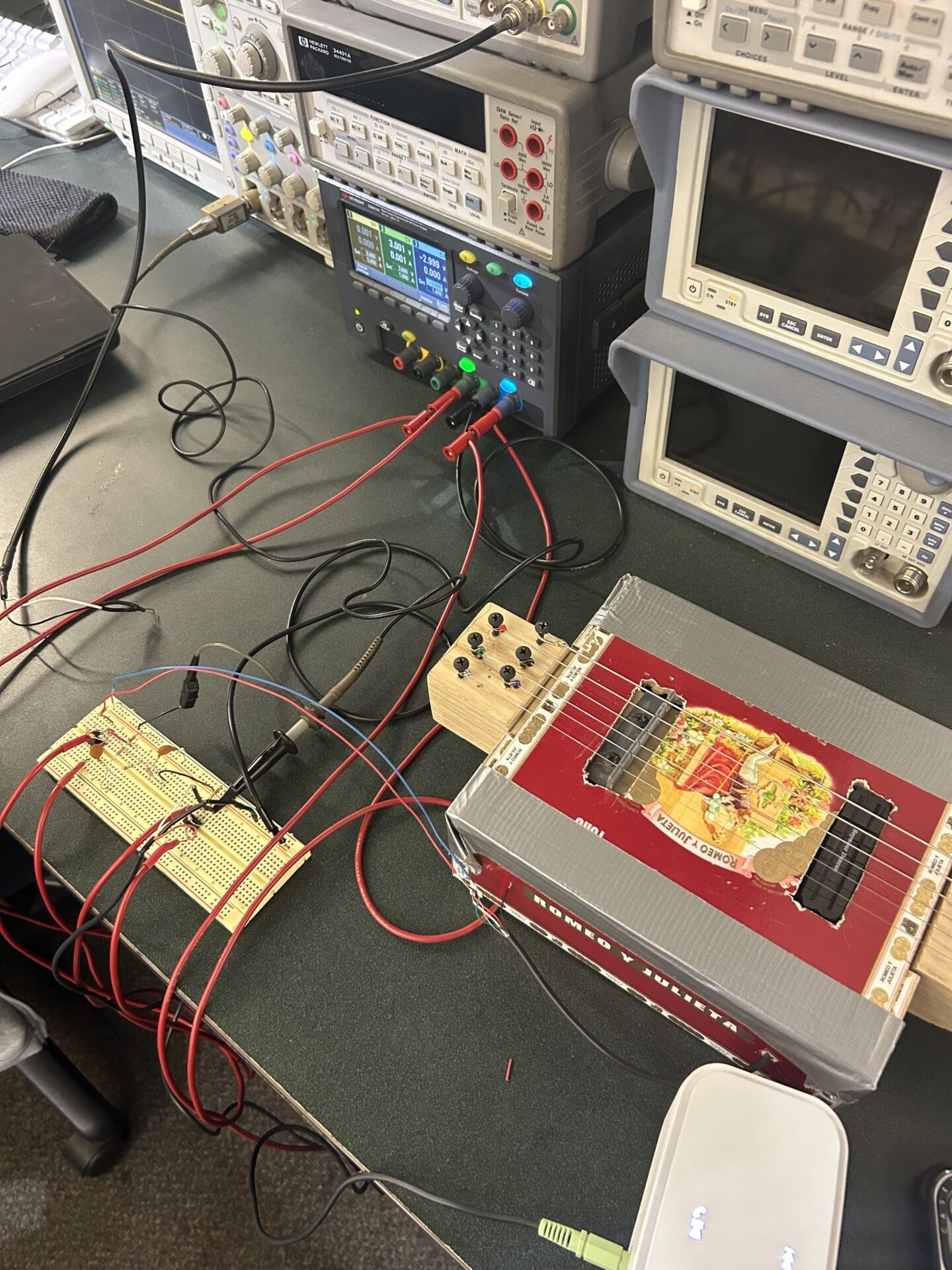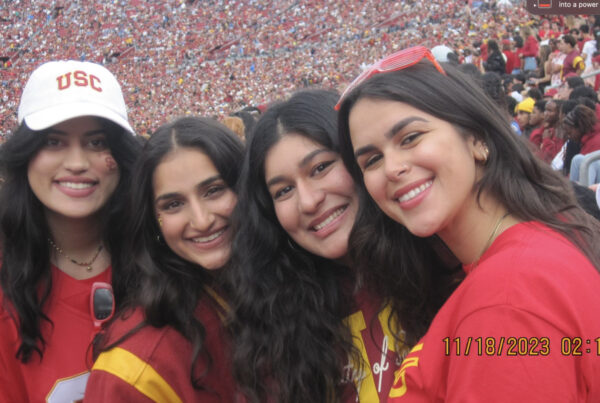Going into college, I knew I wanted to pursue a career in Engineering, but I was not entirely sure what kind of engineering interested me. I distinctly remember staring at the different majors listed and doing research on each one. I came across a couple of articles talking about how Electrical Engineering was “the next big thing” and how it blended hands-on circuit building with software engineering. My research in the field inspired me to check the “Electrical and Computer Engineering” box, but it wasn’t until I stepped foot on campus and started taking major-required courses that I knew I had made the right decision.
CLASSES!
Having little experience in engineering, I was excited to expand my knowledge of the major as quickly as possible. Part of the reason why I have loved my experience at Viterbi is because I was able to take classes specific to my major right away, allowing me to decide whether or not the major was a right fit for me. In my first semester here at USC, I took Computer Programming, Introduction to Electrical & Computer Engineering, Linear Algebra, a general education course, and a writing course. This schedule was a challenge for me, but it helped me familiarize myself with the course load and gain a foundation for my next four years. Every semester since then, I have taken courses in Embedded Systems, Linear Circuits, Software Design, Physics, and much more. The courses have been exciting and have allowed me to become more confident in my engineering knowledge.
LABS & RESEARCH!
Another amazing part of studying Electrical & Computer Engineering has come from the lab and research opportunities related to the major. Every semester, I have had at least one course that includes a lab section, this semester being in my Distributed Systems for the Internet of Things and Software Design courses. The lab sections for my major essentially take what we have been learning in class and allow us to apply it to a weekly project. Aside from lab sections, Electrical Engineers here at USC have a multitude of opportunities to get involved in undergraduate research. I joined the Wireless Devices and Systems Group during my second semester at USC, and it has been a great experience to learn more about how Electrical Engineers can improve wireless communication systems and use new software to run simulations.
COMMUNITY!
Aside from the amazing opportunities and classes Electrical & Computer Engineers have access to, the major also comes with an amazing community. Overall, ECE is not the smallest major at Viterbi, but there are about 50 students who take similar classes together every semester. Because of this, there are lots of familiar faces in all my classes, which allows me to build stronger relationships and teams for collaboration.
DEPARTMENT & PROFESSORS!
Finally, a big part of the ECE major comes from the wonderful support and guidance from the Ming Hsieh Department of Electrical and Computer Engineering and the professors. During my time at USC, I have received emails regarding professional opportunities from the department as well as professors, asked for letters of recommendation, and met with faculty one-on-one to talk, get advice, and ask questions. Without this incredible team, getting through college would be a lot more difficult, which is why I am very grateful for all their help.
Overall, Electrical & Computer Engineering means taking innovative classes, having access to unique professional opportunities, and being welcomed into a tight-knit group of bright-minded thinkers.




